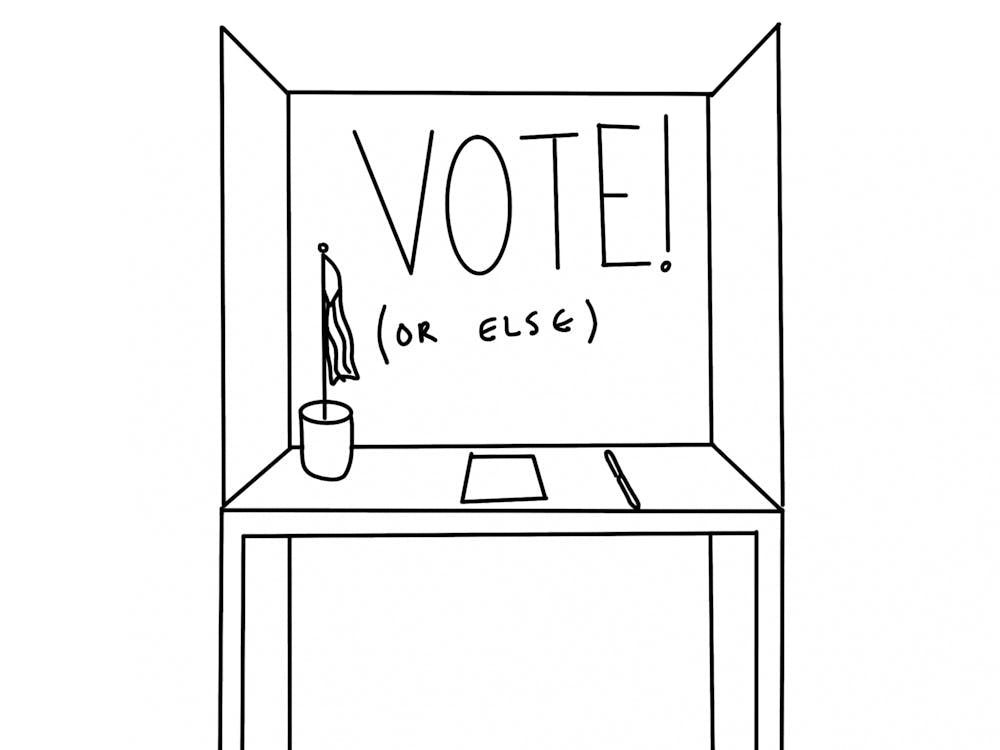Election day has finally arrived. This year hundreds of mayors and other municipal officials are on the ballot across the country, running to make a difference in their communities.
However, in most major cities, less than 15% of voters turned out to cast a ballot for mayoral and city councilor races.
A 2015 study conducted in Dallas found that the median age in mayoral elections was 62, and only 6.1% of eligible citizens voted. The majority of those who voted were from affluent neighborhoods, causing the voting power in Dallas elections to be concentrated with a few elderly and wealthy citizens.
Low-income and minority communities get caught in a Catch-22 where most people don’t vote in local elections because they are simply unaware or due to a belief that nothing will change. But local officials are in positions to have the greatest effect in their everyday lives.
Given abysmal turnout in municipal elections and the persistent problem of voter apathy, the U.S. should consider adopting mandatory voting laws to ensure that low-income and minority voices are better represented in our politics.
One country that has successfully implemented mandatory voting laws is Australia. Since 1924, Australians have been legally compelled to vote, and it has worked fairly well. Unsurprisingly, over 90% of Australian voters typically vote in federal elections, compared to the 55% of eligible American voters that cast ballots in the 2016 presidential election.
Opponents of mandatory voting criticize it for being anti-democratic. However, Australia is one of the healthiest democracies in the world. Australia was ranked in 9th place on the Economist’s Democracy Index in 2017 and in 13th place on Transparency International’s corruption perception index, faring much better than the U.S., which places 21st and 22nd respectively.
Critics also fear that one could go to jail for not exercising their right to vote. However, in Australia, the penalty for not voting is a $20 fine ($15 in American dollars). Moreover, political scientist Emilee Chapman wrote in the American Journal of Political Science, “Only about one in four Australian nonvoters actually pay a fine. Given the low enforcement rate, it seems likely that Australia has achieved its high participation rates because people in Australia see the law as reflecting a moral duty to vote."
This demonstrates that many Australians vote not due to a fear of punishment, but because it has been ingrained as a civic duty. In fact, election day is held on a Saturday in Australia and is accompanied by a holiday-like atmosphere as people head to the polls. In the U.S., election day is on a Tuesday, which prevents many working-class people from getting to the polls because they cannot take time off of work.
If all eligible American citizens voted, then politicians would be reminded that they serve all citizens, not just wealthy donors or political bases. Additionally, the U.S. would benefit from mandatory voting on a national level because candidates would strive to have more moderate policy-oriented campaigns, which would reduce the toxic partisanship we see today.
Chapman also finds that mandatory voting increases voters’ knowledge of politics and increases political engagement. On a local level, this would especially be helpful as many voters do not bother to research candidates to vote for.
In Australia, mandatory voting has significantly benefited the leftist Labor Party as low-income voters there tend to favor progressive policies. Cities like Dallas, where the majority of voters in municipal elections are wealthier and older, would suddenly see a shift toward progressive policies and more diverse candidates running for office.
It is highly improbable that any mandatory voting laws will make it through Congress, but Australia’s experience with mandatory voting may offer possible solutions to the current issues surrounding elections in America.
The 2018 midterms experienced a surge in voter participation because President Trump’s election jolted many Americans out of their apathetic feelings toward voting. This high level of voter participation cannot be allowed to decline once Trump leaves office.
Social media campaigns, same-day voter registration and installing more voting booths in public places may make voting more accessible, but it does not guarantee that low-income and minority communities will vote.






